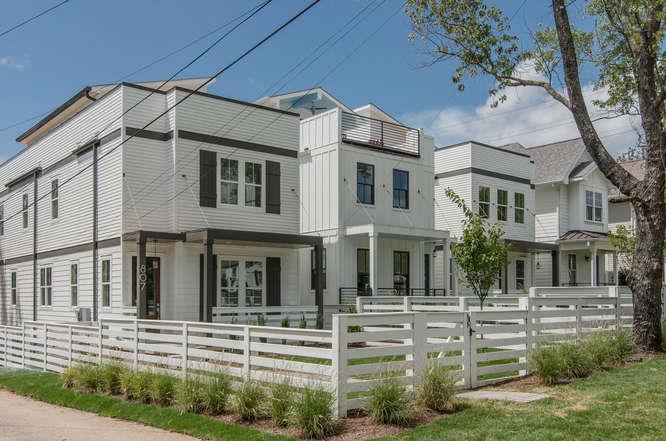HPR: A How-to Guide
A quick look at the Horizontal Property Regime
HPRs: A Quick How-To Guide for Developers and Property Owners
In our last blog, our team broke down the latest property development craze, affectionally known as the “tall and skinnies”, taking over Nashville, Tennessee. By its, formal name, Horizontal Property Regimes (“HPRs”) allow developers to provide additional housing by increasing housing densities in desirable areas. Now, having a general understanding of the “why” behind HPRs, we now turn to the “how” HPRs are established.
Establishing an HPR: The Tennessee Horizontal Property Act
Tennessee Code § 66-27-101 et seq. is known as the “Horizontal Property Act.” The Horizontal Property Act allows contractors or developers, sole owners, and co-owners of a building (the “Declarant(s)”) to establish an HPR by expressly declaring the intent and desire to establish said HPR “through the recordation of a master deed or lease, or by plat” in the Register’s Office of the county in which the real property is located. These declarations are commonly referred to as “HPR Docs”.
Pursuant to the Code, in order to comply with the Horizontal Property Act requirements and properly establish an HPR, the Declarant must:
- Substantially comply with the Horizontal Property Act as it relates to private elements and common elements;
- Include in the HPR Docs, the declaration, bylaws, a plat showing private and common elements, a townhouse corporation, and the attorney certification;
- Obtain and include with the recorded document a certification from an attorney licensed to practice law in Tennessee that all legal documents required to establish an HPR are included with the HPR Docs; and
- Record the HPR Docs Register’s Office of the county in which the real property is located.
HPR Docs: Meeting the Requirements
Substantial Compliance
In order to substantially comply with the Horizontal Property Act as it relates to private and common elements, the HPR documents must show that
- Each owner of a private element shall own a pro rate share of the total membership in the townhouse corporation; and
- The common elements, both general and limited, shall remain undivided and cannot be subject to action for partition or division of co-ownership.
Required HPR Docs
The master deed, lease, declaration, plat, or any combination of them must include the following:
- The description of the land, whether leased or owned, and the building, expressing their respective areas;
- The general description and number of each unit, expressing its area, location, along with any other necessary data needed for identification;
- The description of the general common elements and limited common elements of the building as well as the private elements of the property;
- A copy of the Homeowner’s Association (“HOA”) Charter filed with the Tennessee Secretary of State created for the administration and governance of the building(s);
- The By-Laws governing the HOA; and
- An attorney certificate certifying that all legal documents required to establish an HPR are included with the HPR Docs.
The HOA By-Laws
The By-Laws governing the HOA must provide for at least the following:
- The form of administration, indicating who shall be in charge of administration and specifying the powers, manner of removal, and, if applicable, the method of compensation for the administration of the HOA
- The method of calling meetings of the co-owners, the majority required to adopt decisions, who shall preside over meetings and who shall keep minutes and record said decisions;
- The care and upkeep of the general or limited common elements and services in the HPR;
- The manner of collecting payment from co-owners for common expenses; and
- The designation and dismissal of the personnel necessary for the works and the general and/ or limited common services of the building.
It should be noted, the co-owners may modify the system of administration at any time, by resolution, which must be recorded in the same office and in the same manner as was the original HPR docs.
The Great Divide: Is an HPR Right for me?
Tall and skinny homes are becoming the new normal in Nashville, and this article details the requirements for establishing an HPR, there are numerous other factors and considerations to make prior drafting and recording your HPR Docs. If you are If you are interested in forming an HPR or have questions about purchasing a tall and skinny in Nashville and the surrounding area, contact Collins Legal.
More Blogs:
→ BLOG: What is a Horizontal Property Regime
→ BLOG: Easements in Tennessee: What You need to Know
→ BLOG: Easement in Gross

